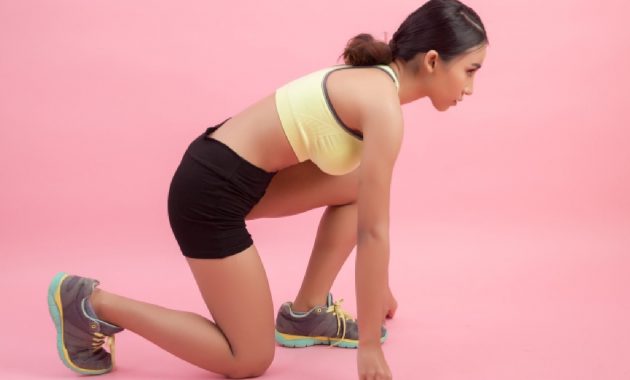Crow walking pose or Kawa Chalasana involves balancing your body on your toes while walking! Here are the benefits of the crow walking pose.
The Crow Pose is an arm balance yoga asana for which you need to move most of your weight forward into your hands. If you don’t get it right, you could fall flat on your face. Add movements to it, and you will get the Crow Walking Pose or Kawa Chalasana! No, you don’t have to walk on your hands, literally! But like the Crow Pose, Kawa Chalasana is also inspired by the bird. Crow Walking Pose looks like how a crow moves. It involves squatting and moving forward for a few seconds, making it a great workout for your lower body. Let’s take a look at the benefits of the Crow Walking Pose.
What is the Crow Walking Pose?
The Crow Walking Pose, also known as Kawa Chalasana in Sanskrit, is a seated walking asana that gives special emphasis on the lower body. This asana requires significant strength as well as focus, says yoga expert Himalayan Siddhaa Akshar.

What are the health benefits of the Crow Walking Pose?
While the Crow Pose is majorly about arms, Kawa Chalasana mostly focuses on the lower back, hips, knees, and quadriceps. Here are some key health benefits of Crow Walking Pose.
1. May strengthen knees
The asana that has a seated movement with knees bent, stretches your lower body, including the muscles of your hips, knees, ankles, and hamstrings. Your knees may become weak if you lead a sedentary life, so doing this asana can strengthen them.
2. May improve balance
It involves walking on toes while maintaining balance. It engages the lower body muscles, and in turn improves strength and overall balance.
Also Read

3. May increase concentration and focus
The Crow Walking pose needs a lot of concentration and mental focus. So, doing this yoga pose can help improve overall focus and concentration abilities, says the expert.
4. May improve gut health
When you do the Crow Walking pose, it puts pressure on the abdominal area, stimulating the digestive organs and providing them better circulation. This can help to deal with stomach-relayed issues such as gas, indigestion, bloating, and constipation.
5. Increases flexibility
If you practice this asana regularly, it will help increase the flexibility and mobility of your hips and pelvic muscles. This way pelvic stiffness van be reduced.
How to do the Crow Walking Pose?
To do Kawa Chalanasana, follow these steps:
- Start by sitting in the squat position. Your feet should be kept apart and the butt above your heels.
- Keep the palms of your hands on your knees.
- Maintain the squat position and take small steps forward.
- While walking on your toes, your butt should not move away from your heels.
- When you take a step forward, place your opposite knee on the floor.
Try to take about 50 steps and keep your breathing slow throughout the asana.

Pregnant women and those who may have undergone knee surgery or have arthritis or osteoporosis, should avoid doing this asana, as it can worsen the symptoms. Even during periods, women should not do this asana, as it puts pressure on the abdominal area.
The Crow Walking Pose is a great way to reduce stiffness in the lower body while improving your balance and focus. But not everyone should attempt this seated walking yoga pose. All you have to do is listen to your body, practice within your current abilities, and seek guidance from a qualified yoga teacher to do this asana.
#Crow #walking #Pose #Health #benefits #Kawa #Chalasana
